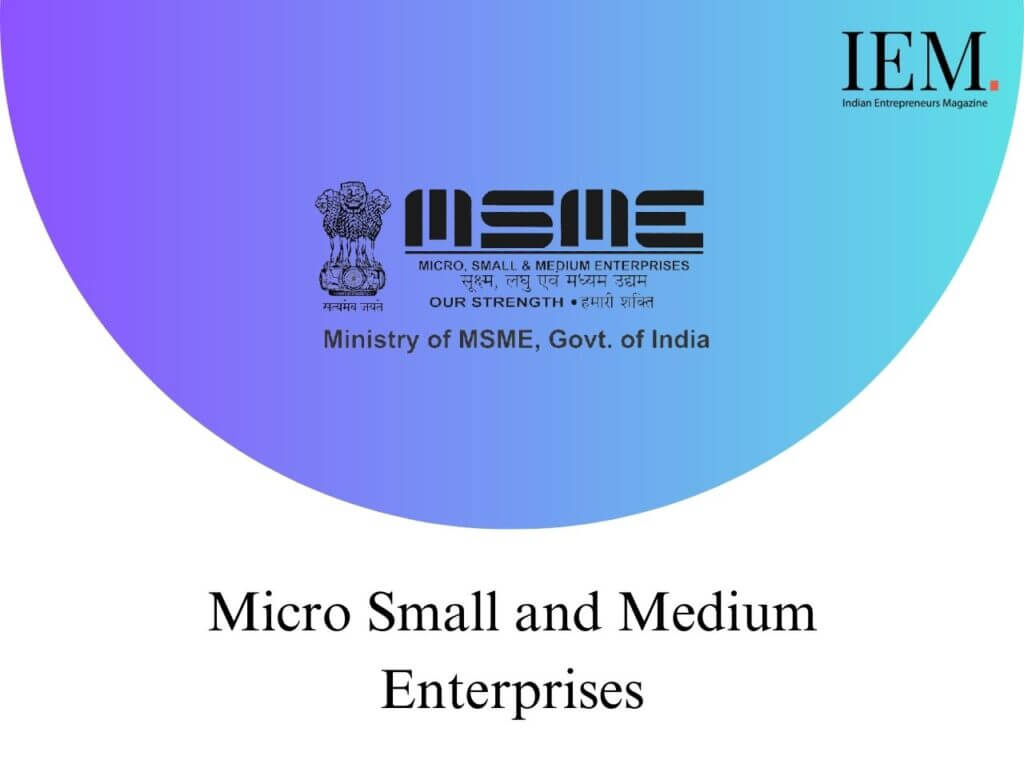Micro, Small, and Medium Enterprises (MSMEs) are an integral part of the Indian economy. They not only contribute to the country’s GDP but also generate employment opportunities. In the wake of the COVID-19 pandemic, the Government of India has taken several measures to support MSMEs. In this article, we will discuss the new definition, classification, and registration process of MSMEs.
New Definition of MSMEs
The Government of India introduced a new definition of MSMEs on 1st July 2020. Under the new definition, MSMEs are classified based on their annual turnover or investment in plant and machinery. The following table shows the new classification:
| Type of Enterprise | Investment in Plant & Machinery or Annual Turnover |
| Micro | Up to Rs. 1 crore and turnover up to Rs. 5 crore |
| Small | Up to Rs. 10 crore and turnover up to Rs. 50 crore |
| Medium | Up to Rs. 50 crore and turnover up to Rs. 250 crore |
Micro Enterprises Turnover Limit
Micro Enterprises have a turnover limit of up to Rs. 5 crore, as per the new definition. This means that if a business’s annual turnover is up to Rs. 5 crore, it will be classified as a micro-enterprise. The investment in plant and machinery for micro-enterprises should be up to Rs. 1 crore.
MSME Classification
The MSMEs are classified based on the investment in plant and machinery or annual turnover. The new classification provides a clear demarcation of micro, small, and medium enterprises. This will help businesses in availing various benefits provided by the government for MSMEs.
MSME Registration
MSME registration is a simple and online process. The government has launched an online portal, Udyam Registration Portal, for MSME registration. The registration process is free of cost, and there is no need to submit any documents. Businesses can register on the portal by providing basic details such as PAN, Aadhar, and GSTIN.
MSME Certificate
After successful registration, businesses will receive an MSME certificate. The certificate will contain a unique Udyam Registration Number (URN) and other details such as the name of the enterprise, address, and date of commencement. The MSME certificate will help businesses in availing various benefits provided by the government for MSMEs.
List of Small and Medium Enterprises in India
India has a large number of MSMEs, which are spread across various sectors. Some of the popular sectors for MSMEs are manufacturing, agriculture, and services. The following is a list of small and medium enterprises in India:
- Manufacturing: Textile, Chemical, Food Processing, Engineering, and Automobile
- Agriculture: Agro-based industries, Handicrafts, and Handloom
- Services: IT and IT-enabled services, Tourism, and Hospitality
Micro, Small and Medium Enterprises PDF
The Ministry of MSMEs has released various guidelines and reports in the form of PDFs, which are available on their official website. Businesses can download these PDFs and get detailed information about various schemes and benefits provided by the government for MSMEs.
MSMEs play a vital role in the growth of the Indian economy. The government has taken various initiatives to support MSMEs, such as collateral-free loans, subsidies, and tax exemptions. The new definition and classification of MSMEs provide a clear demarcation and will help businesses in availing various benefits provided by the government. The online registration process and MSME certificate have made it easier for businesses to register and avail benefits. MSMEs should take advantage of these benefits and contribute to the growth of the economy. With the help of the MSME registration portal, businesses can register themselves in a hassle-free manner and get access to various schemes and incentives provided by the government.
Moreover, the MSME sector has a significant impact on employment generation in India. It is estimated that MSMEs provide employment to over 100 million people in the country. Therefore, the growth and development of the MSME sector will not only contribute to the GDP but also generate more employment opportunities.
In conclusion, the new definition, classification, and registration process of MSMEs have simplified the process for businesses to avail benefits provided by the government. MSMEs should take advantage of these benefits and contribute to the growth of the economy. With the support of the government and the contribution of MSMEs, India can achieve its goal of becoming a $5 trillion economy.

